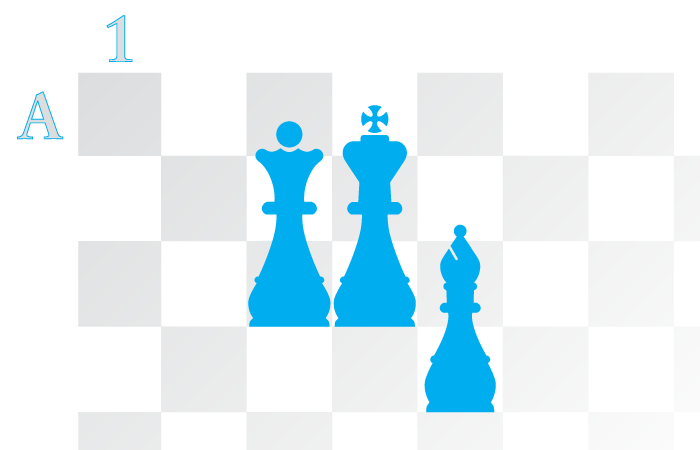 Laser-like focus? Check. Keen memory? Check. Intrinsic motivation? Check.
Laser-like focus? Check. Keen memory? Check. Intrinsic motivation? Check.
Parental support? Checkmate.
The development of chess prodigies owes much to the parents who foster their innate talent, according to a book chapter recently co-authored by two CYFS researchers – one of whom can speak from personal experience.
Written by faculty affiliate Kenneth Kiewra and CYFS project manager Amanda Witte, the chapter examines contemporary and classic case studies that detail the investments parents made to help their children reach the highest echelons of chess.
The researchers found that these parents assumed many unfamiliar responsibilities, often adopting roles that ranged from manager and coach to financier and psychologist.
“Parents had to get out front and handle all aspects of their children’s chess careers,” said Kiewra, a professor of educational psychology at the University of Nebraska-Lincoln. “The degree to which they did that, I think, played a large role in how successful the child was.”
Kiewra and Witte interviewed the parents of several young chess players, each of whom ranked first nationally in their age group. The children included America’s youngest-ever grandmaster – the game’s highest rank – and another who authored a book on chess at the age of 14.
The authors also studied the narratives of Bobby Fischer, the only American to win the World Chess Championship, and Josh Waitzkin, subject of the book and subsequent film “Searching for Bobby Fischer.”
The chapter, published in “The Nurturing of Talent, Skills and Abilities,” identifies numerous themes that unite the accounts of how prodigies develop. According to Kiewra, nearly all were introduced to the game at a young age by parents who had at least a basic understanding of chess.
Most parents had relatively little playing experience, however, and learned the game in tandem with their children, he said. This often involved hundreds of hours studying chess strategies, developing lessons, and conducting regular training sessions.
“Several of [the parents] said that this is akin to a second job, if not a first job,” Kiewra noted. “It’s an incredible investment of time, not only for the child but for the family.”
When their children’s progress demanded more advanced instruction, Kiewra said, parents identified and hired world-class coaches capable of providing it. They also accompanied their children on cross-country trips to chess tournaments and camps that often required lengthy absences from work and home.
These demands often prompted families to make extreme professional and personal sacrifices for their children, according to Kiewra. In many households, one parent either quit working or took less prestigious but more flexible jobs to free up time.
Others took on extra work or moved into smaller homes to help afford the expenses associated with coaching and travel – expenses that Kiewra said often ran between $20,000 and $50,000 annually.
Kiewra emphasized that parents and children invested so much because they considered the process its own reward. He called that process a “labor of love,” citing the parents’ love for their children and their children’s love of the game.
“Win or lose, the parents don’t regret any of this, because the process is so gratifying and enjoyable,” said Kiewra. “The joy is in the journey more than the destination; it brings them closer to their child. They’re involved on the front lines with their child, and it’s an amazing experience both for the child and the parent. They’re not doing it for championships or trophies or money.”
Research from Practice
Many of the anecdotes relayed by parents resonated with Kiewra, who said his interest in studying the development of chess prodigies stems from the years he spent raising one.
After noticing his son excel in games such as tic-tac-toe and Connect Four, Kiewra taught him a few basics of chess at the age of 4. When his son entered second grade, Kiewra reintroduced him to the game – and watched his appetite for chess grow with each passing day.
“Within that same week, he wouldn’t stop playing and was really hungry for more knowledge,” Kiewra said. “So I got some chess books and started teaching him from those. Within a couple of months, I found a real teacher, and it just kind of exploded from there.”
Kiewra began traveling with his son to chess camps in New York and Chicago. He sought sponsorships and donations to help pay for $50-an-hour lessons taught by grandmasters. He even convinced his son’s school to make chess a credit-bearing subject of study in its mentoring program.
Throughout the process, Kiewra’s son devoted thousands of hours to his passion, eventually finding success that matched his commitment. He won numerous national titles and earned a full college scholarship in chess. Now 26, he has become an international master – on the brink of becoming a grandmaster – and earns his living as a chess instructor while continuing to play competitively.
Having both researched and provided the support necessary to cultivate a chess champion, Kiewra said he believes such achievement is ultimately shaped even more by nurture than nature.
“Even people with the best minds aren’t going to get [to that level] without the right environmental support,” Kiewra said. “I think talent is partly born, but that, in the end, it is largely made.”